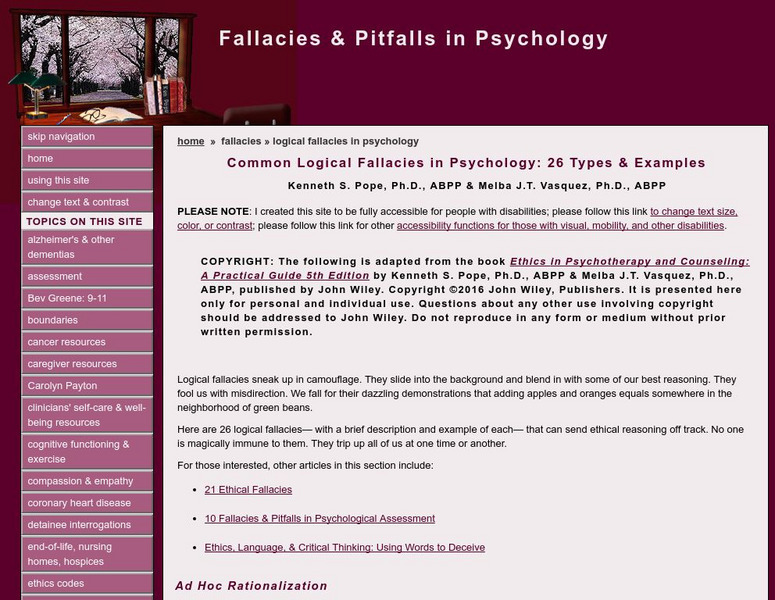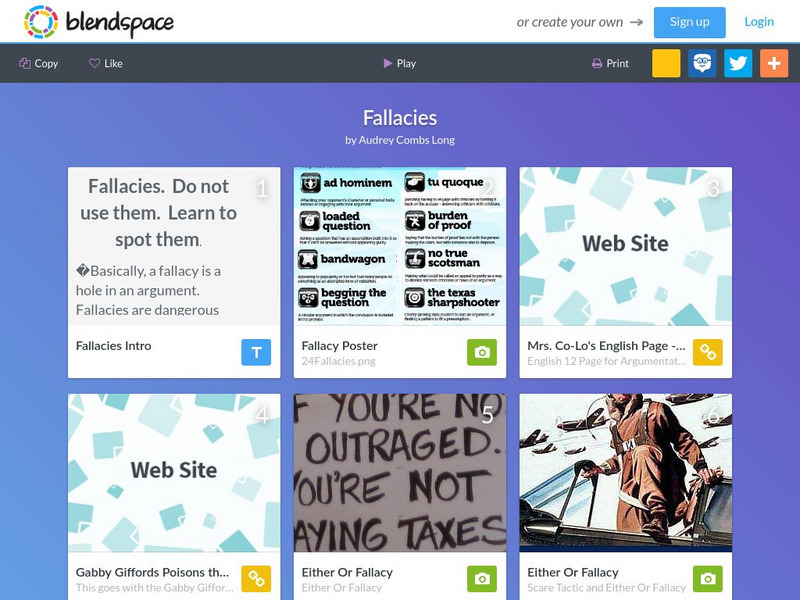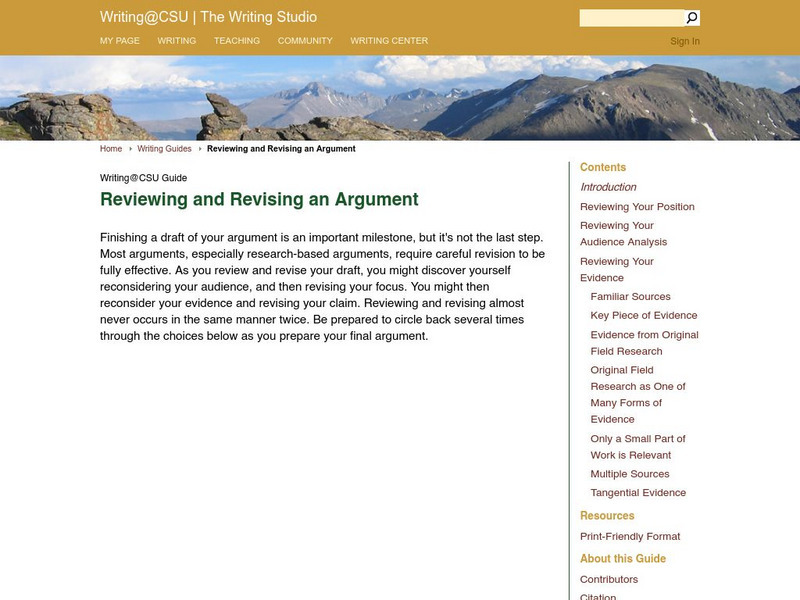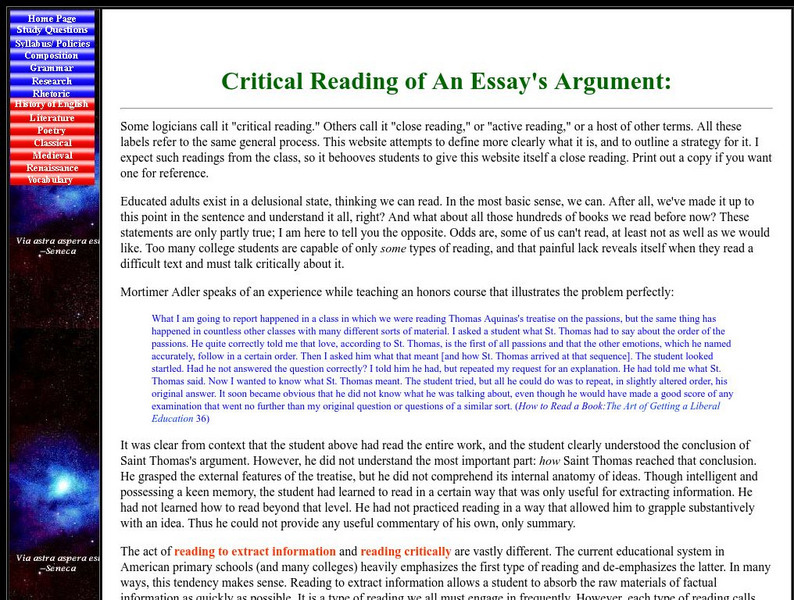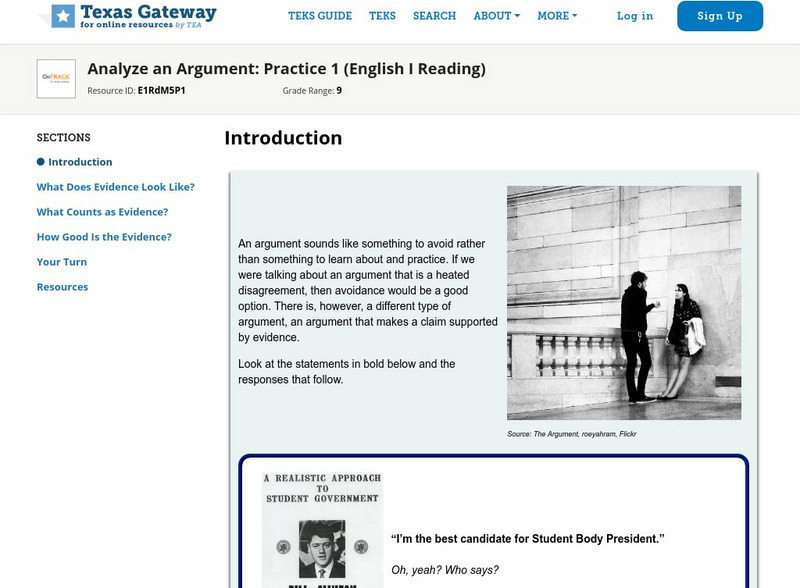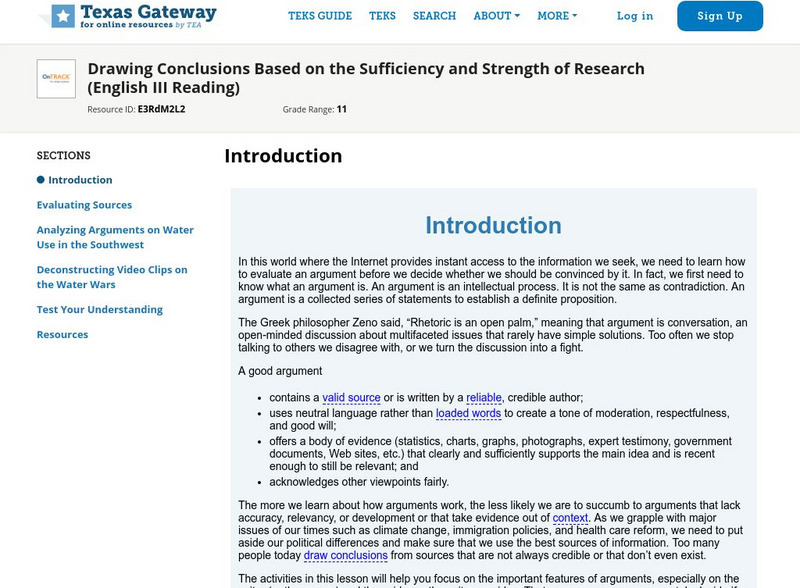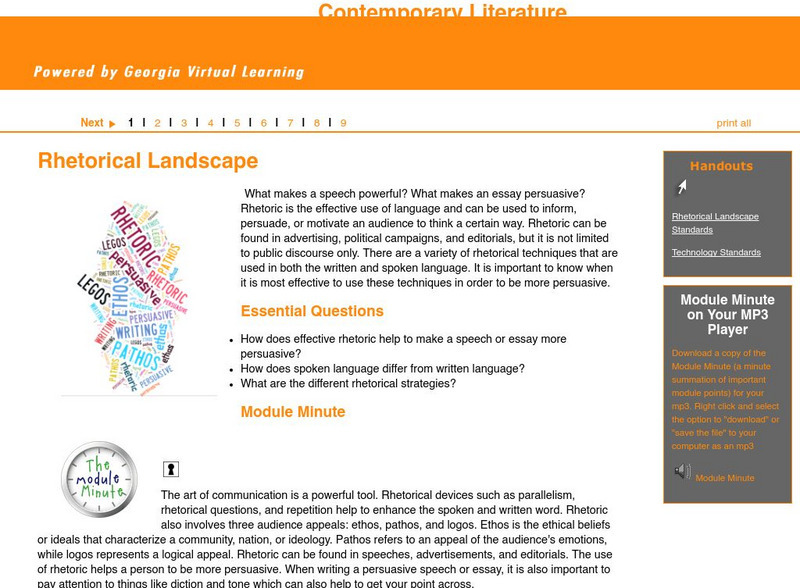EngageNY
Grade 9 ELA Module 2, Unit 3, Lesson 4
What are the qualities of a strong written response to a prompt? Class members use the provided text analysis rubric to self-assess their responses to their homework assignments to prepare for the mid-unit assessment.
EngageNY
Grade 9 ELA Module 2, Unit 3, Lesson 2
"Everybody is guilty of something." As class members continue their close reading of Walter Mosley's essay, they examine how Mosley develops and supports his central ideas about Western civilization's relationship to guilt.
EngageNY
Grade 10 ELA Module 1: Unit 3, Lesson 14
A thorough unit on literary analysis and character development culminates in a final writing assessment. Prompted to compare the parent-child relationships in Amy Tan's The Joy Luck Club and H.G. Bissinger's Friday Night Lights, high...
EngageNY
Grade 10 ELA Module 1: Unit 3, Lesson 11
Football fans and ready readers will enjoy a lesson based on H.G. Bissinger's Friday Night Lights. Focusing on chapter 4, the lesson encourages tenth graders to examine Mike's character development as it relates to the season opener and...
Maryland Department of Education
The Concept of Diversity in World Literature Lesson 3: Igbo Culture
What cultural concepts must readers understand in order to connect to Things Fall Apart? As part of their study of Chinua Achebe’s novel, class members research Nigeria and the Igbo culture to create a collaborative, web-based, annotated...
Curated OER
A Way with Words
How do facts and opinions impact the news? After reading "How to Cover a War" from the New York Times, middle schoolers evaluate the claims in the article. They also consider the media's responsibilities in reporting during wartime....
Curated OER
Test-Driving Computers
A new form of standardized testing? Learners evaluate arguments for and against the use of computer-based standardized tests in schools. They express their views through discussion and explore the views of others through the creation and...
Southern Nevada Regional Professional Development Program
Focus: Writing a Brief Research Paper
If you are planning on working on a research paper in your class, take a look at this resource first. Starting off with information about plagiarism, the series of activities briefly described here should give your pupils a general idea...
Alabama Learning Exchange
Environmental Scrapbook and Podcast
High schoolers collect newspaper and magazine articles about the environment and construct a scrapbook using construction paper, glue, and scissors. To make it even more environmentally friendly, groups can create an online scrapbook...
Georgia Department of Education
Ga Virtual Learning: Nonfiction and Research: Nonfiction Forms and Traits [Pdf]
This is a chart showing the types of nonfiction, the traits of each, and the author's purpose.
University of Glasgow
University of Glasgow: Critical Reviews
This site is designed to be used by psychology students at the university level, but it provides helpful instruction for anyone writing critical reviews of non-fiction. Instruction includes everything from how to be critical to...
Other
Fallacy Files: Main Menu
This site contains a wealth of information about logical fallacies (flawed logic) and gives detailed explanations of some of the most common forms, which are listed in a menu along the left hand side of the page. Since many of these...
Other
Fallacies & Pitfalls in Psychology
This page lists and explains 18 of the most commonly used logical fallacies. "The name of each fallacy is followed by a brief description and an example from the field of psychology."
Virtual Salt
Virtual Salt: Introduction to Critical Thinking
An introduction to the concept of Critical Thinking examines the true definition and gives examples where it can be used as a constructive force.
Georgia Department of Education
Ga Virtual Learning: Types of Writing: Expository and Persuasive
This lesson introduces two types of writing: expository and persuasive. It defines and provides examples of each kind. It offers links to MLA Formatting and Style Guide and sample papers of opinion and exository essays.
TES Global
Blendspace: Fallacies
A thirty-part learning module with links to texts, images, websites, and videos about common fallacies found in arguments.
Colorado State University
Colorado State Writing Center: Reviewing and Revising an Argument
An excellent guide to help the writer review a composition to see if their position has been fully supported by evidence and to analyze the perspective of the anticipated audience. Follow the links on the right to access all of the...
Annenberg Foundation
Annenberg Learner: Arbiter
Determine your standards (logic, creativity, structure, etc.) when assessing student writing. Evaluate three essays using an analytic or holistic rubric and see how your standards compare with your peers.
Other
Carson Newman College: Critical Reading of an Essay's Argument
Extensive examination of what it means to critically read an argument. This process is sometimes called "critical reading," or "close reading," or "active reading." First the differences between reading to extract information and reading...
Texas Education Agency
Texas Gateway: Revising the Persuasive Essay: Counterarguments Based on Evidence
[Accessible by TX Educators. Free Registration/Login Required] You will learn strategies for evaluating and revising counter-arguments that anticipate objections in an essay.
Texas Education Agency
Texas Gateway: Analyze an Argument: Practice 1 (English I Reading)
In this lesson, students practice analyzing the evidence that supports or opposes an argument. They are also going to learn to analyze the quality, relevance, and credibility of the evidence so you can decide whether to accept the...
Texas Education Agency
Texas Gateway: Differentiate Among Empirical, Anecdotal, and Logical Evidence
[Accessible by TX Educators. Free Registration/Login Required] In this lesson, students will learn about three types of evidence that writers often rely on: logical, empirical, and anecdotal. It will also help you distinguish among these...
Texas Education Agency
Texas Gateway: Drawing Conclusions on the Sufficiency and Strength of Research
The activities in this lesson will help you focus on the important features of arguments, especially on the writer (or the source) and the evidence the writer provides. That way, you can more accurately decide if an argument is valid and...
Georgia Department of Education
Ga Virtual Learning: Contemporary Literature: Rhetorical Landscape
This is an introduction to a unit on the use of rhetoric in speaking or writing to persuade an audience to the desired way of thinking or action. If focuses on rhetorical techniques and the three audience appeals: ethos, pathos, and logos.


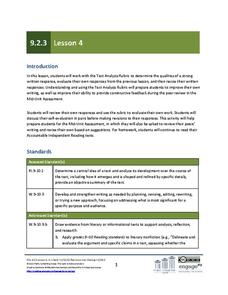
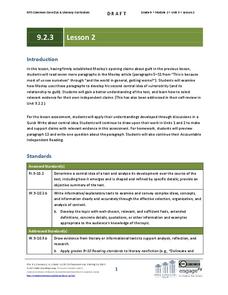


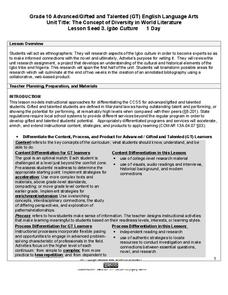




![Ga Virtual Learning: Nonfiction and Research: Nonfiction Forms and Traits [Pdf] Unit Plan Ga Virtual Learning: Nonfiction and Research: Nonfiction Forms and Traits [Pdf] Unit Plan](https://d15y2dacu3jp90.cloudfront.net/images/attachment_defaults/resource/large/FPO-knovation.png)


